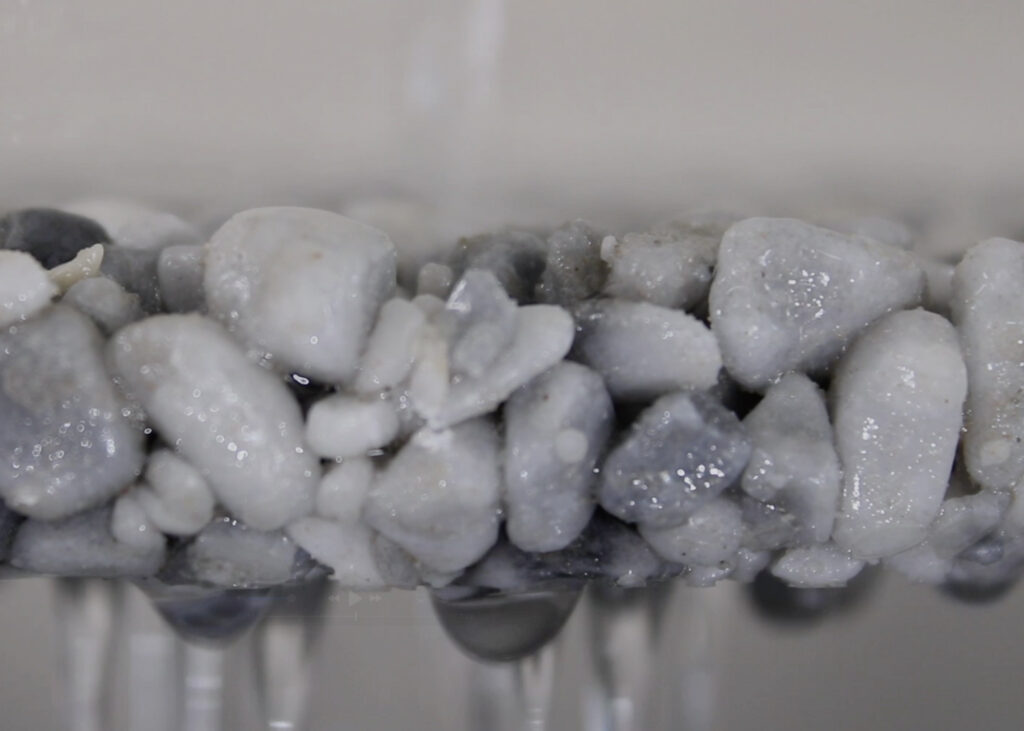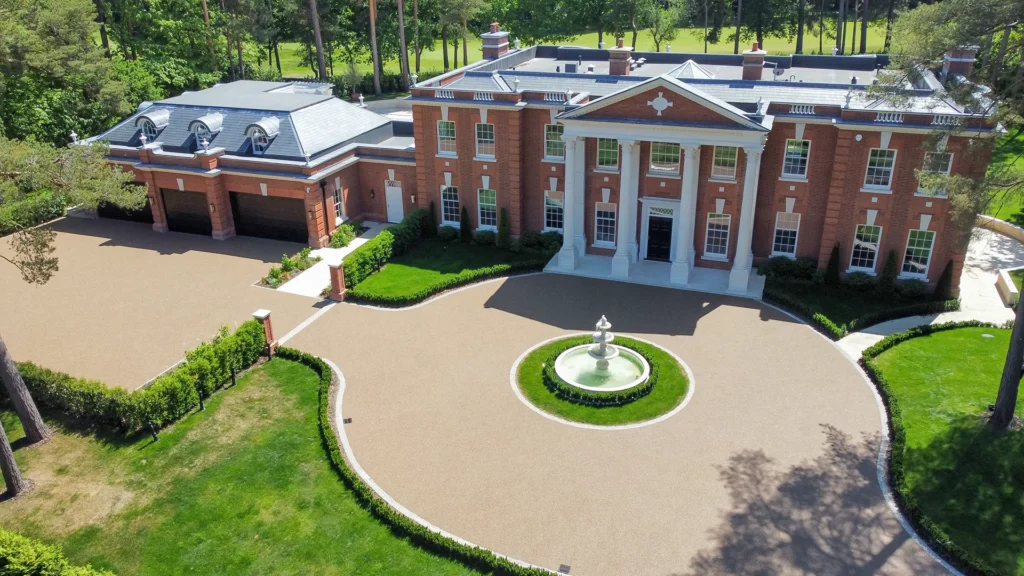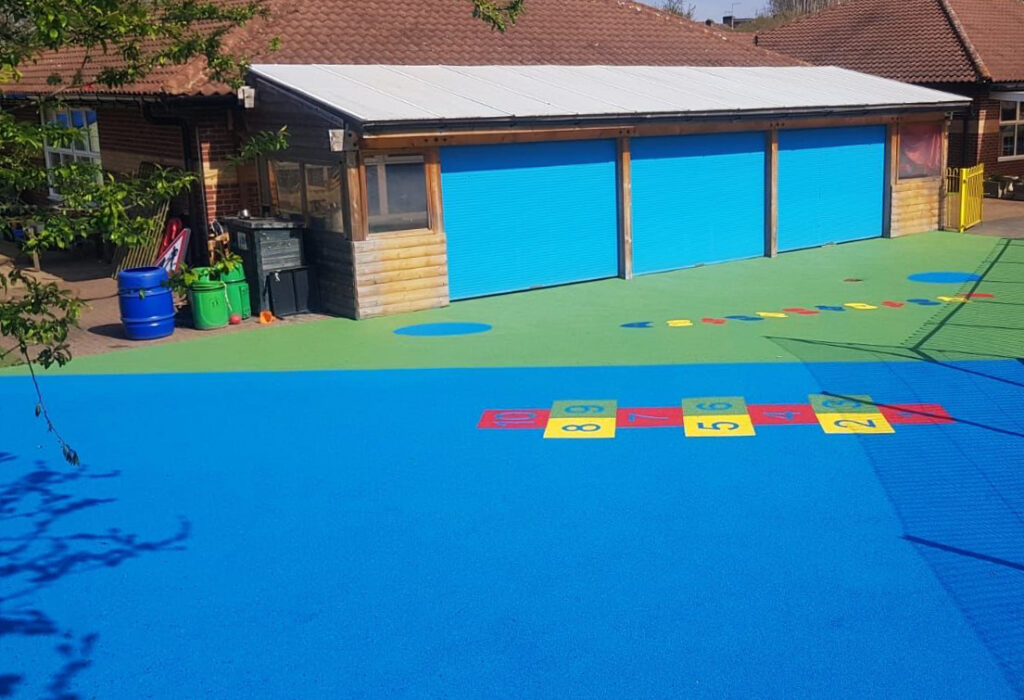How Long Do Resin Driveways Last?
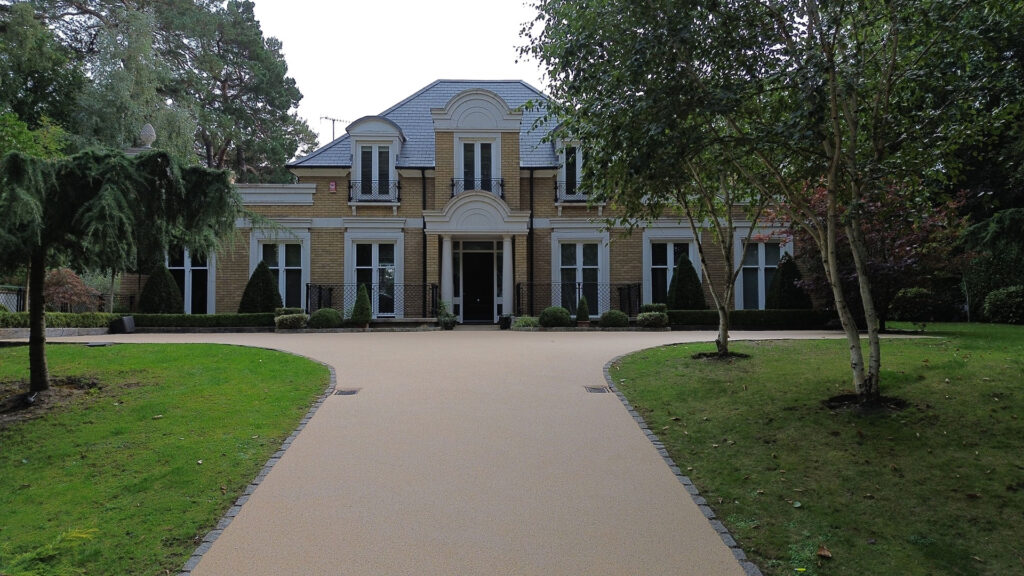
When investing in a new driveway, you want a surface that looks exceptional and lasts for years. Resin-bound driveways have become one of the UK’s leading choices, and for good reason. They combine style, strength and sustainability in a surface that performs beautifully all year round.
But how long does a resin driveway really last? And what determines whether yours will still look great after a decade?
Let’s take a closer look.
What is a Resin Driveway?
When we talk about resin driveways, we’re usually referring to a resin-bound system. This is made by mixing natural stone aggregates with a clear, UV-stable resin. Once blended, it’s laid and trowelled to form a smooth, seamless surface that’s both durable and porous.
Because every stone is coated in resin, the surface is solid underfoot, yet allows water to drain through. That means no puddles, no loose stones and no weeds, just a clean, modern finish that enhances any property.
Resin-bound surfacing also meets SuDS (Sustainable Drainage Systems) regulations, so it’s environmentally friendly and helps manage surface water naturally.
How Long Does a Resin Driveway Last?
A well-installed resin driveway can last 20-25 years or longer, depending on materials, installation quality and maintenance.
Here’s what really influences that lifespan:
1. Material Quality
Longevity begins with the materials. Premium, UV-stable resin prevents yellowing or fading, while high-grade aggregates ensure the resin surface remains strong under pressure. Crack reduction membranes should also be used to stop reflective cracking.
2. Base Preparation
A professionally prepared base is the foundation of a long-standing driveway.
Resin-bound systems require a strong, level and permeable sub-base, typically open-graded tarmac or porous concrete, which provides essential support and drainage.
Before installation, it’s crucial to inspect every base to ensure it’s clean, stable, and free from cracks or movement. A poorly prepared base, such as one with an uneven surface or inadequate drainage, can lead to cracking, sinking or water pooling, reducing the potential life of the driveway by years.
3. Correct Mixing
The resin-to-aggregate ratio must be precise, and each batch must be timed and mixed consistently. When done right, it forms a seamless surface that cures evenly and maintains strength for years.
Our experienced installers use calibrated mixers and tested blends to guarantee a uniform finish, making sure every section performs as well as it looks.
4. The Right Thickness
Resin driveways are typically laid at 18–20mm thick for standard residential use.
This provides enough structural depth to handle vehicles and foot traffic without cracking or deformation. Thinner layers may wear prematurely, so precise measurement is essential for long-term performance.
5. Installation Expertise
Experience is a key factor that significantly plays a part when installing a resin-bound driveway.
Experienced installers understand how to handle challenges like temperature, humidity, measuring the correct depths and steep gradients. For example, a good installer would always ensure the depth of a driveway is 18-20mm for most residential applications.
In contrast, an installer with little to no experience may create weak points, uneven surfaces or improperly mix the aggregate and resin, drastically reducing the driveway’s lifespan.
At Ace Resin, we take the time to get every detail right, from preparation to weather timing, so your resin driveway looks flawless and stays that way.
6. Traffic and Vehicle Types
Resin driveways are an ideal choice for standard residential use, particularly suitable for cars, bikes and pedestrians. However, consistent heavy loads, such as delivery vans or heavy-duty vehicles, may speed up wear; therefore, we recommend reinforced blends designed to handle extra load.
If heavier vehicles regularly use the driveway, we can recommend reinforced blends designed to handle extra load.
Avoiding “dry steering” (turning the wheels while stationary) also helps protect the surface from unnecessary wear.
If all of the above criteria are adhered to, a resin-bound driveway can last 20-25 years or more. Its durability can even exceed this range with proper maintenance.
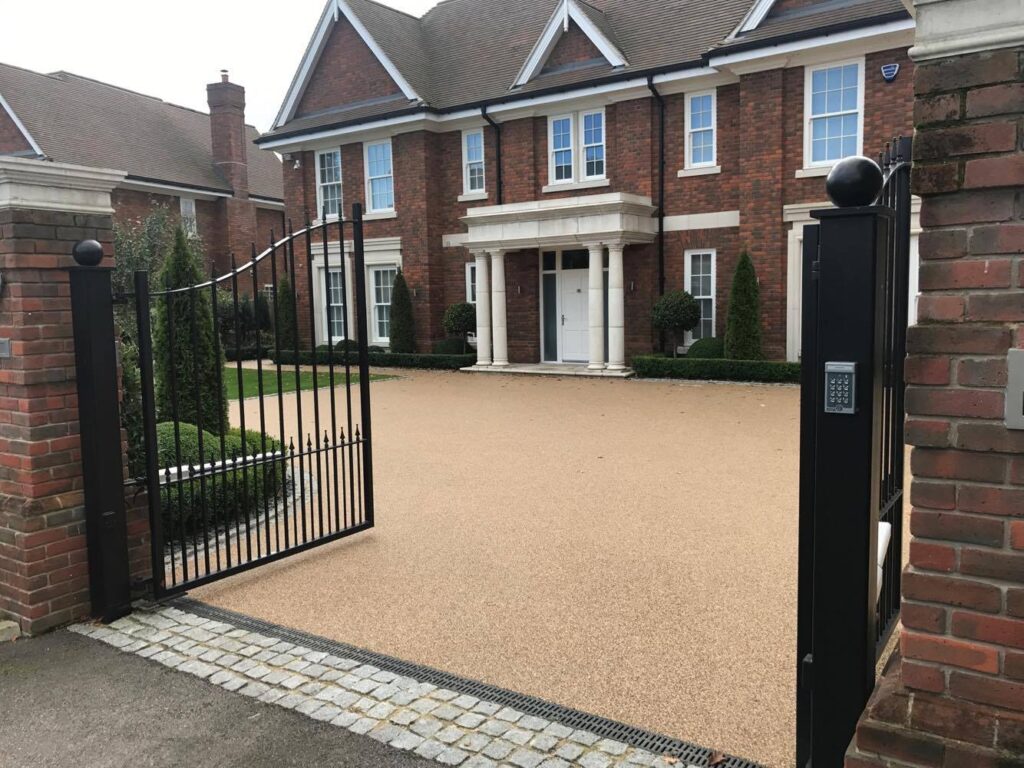
How Do Resin Bound and Resin Bonded Driveways Compare in Longevity?
Resin-bound is ideal for driveways whereas resin-bonded systems are somewhat impractical. While a resin-bound surface is seamless, permeable and resistant to cracking, resin-bonded driveways are prone to loose stones and wear over time due to their simplistic structure.
With this being said, we would always recommend staying away from a resin-bonded driveway option if offered. Whilst the price might be deemed attractive, this type of drive won’t last in the long term. Therefore, for longevity and durability, resin-bound UV-stable is the superior choice.
How Long Do Other Types of Driveway Materials Last?
If installed correctly, you can expect your resin-bound driveway to last 20-25 years. Let’s see how this lifespan compares with other common driveway materials.
Block Paving (20-25 years)
Block paving, like resin-bound surfaces, offers a lifespan of up to 25 years if well-maintained. However, over time, weeds can grow between the joints and individual blocks may shift, creating uneven surfaces. Poor drainage can also cause water to pool and damage the sub-base, which might lead to flooding or damage to the sub-base.
Asphalt or Tarmac Drives (15-20 years)
Tarmac driveways typically last about 15-20 years and perform well under standard vehicle use. However, cracks and potholes can develop, especially when water seeps in and freezes during Winter. Repairs are often required; fortunately, Tarmac can be resurfaced without a full replacement. However, it is important to note that repairs are usually visible, and the surface tends to fade over time.
Gravel (5-10 years)
Gravel driveways are inexpensive to install but have a shorter lifespan of around 5–10 years. Loose stones can shift, scatter, or sink, requiring regular raking and top-ups. Gravel is also prone to ruts and puddles after heavy rain, making it less practical for everyday use.
Concrete (25-30 years)
Concrete driveways can last between 25 and 30 years, but they’re far more likely to crack and stain as they age. Cold weather and ground movement often cause visible damage, while oil and tyre marks can be difficult to remove. Concrete also becomes slippery in winter and offers no natural drainage.
Resin-bound driveways avoid these issues entirely, staying safe, permeable and visually consistent.

Why Experience Matters with Resin Bound Driveways
When installed correctly, resin driveways are highly dependable. However, poor materials or rushed workmanship can lead to avoidable issues:
– Cracks arising in the driveway – caused by an unstable base or incorrect mix ratio.
– Fading – Happens with non-UV resin reacting to sunlight, leading to a yellowed or patchy appearance.
– Moss, Mould or Weed Growth – Can appear if debris is left to settle on the surface or if the driveway isn’t cleaned periodically.
– Loose Stones – Usually due to incorrect resin-to-aggregate ratios or installation in damp conditions.
– Unsuitability for Heavy Vehicles – Standard resin systems are designed for domestic traffic; heavier use requires a reinforced blend.
An experienced installer will take steps to prevent these issues from happening in the first place. At Ace Resin, every surface is laid at the correct depth to stop cracking, and we only use UV-stable resins that won’t fade or discolour over time. Check out our post on the full list of pros and cons of resin driveways
Maintenance Tips to Help Your Driveway Last Longer
Even though resin-bound driveways are low-maintenance by design, a little care will keep them in top condition.
Brushing
Use a stiff broom to remove leaves, dirt, and other debris. Regular brushing helps prevent blockages in the resin’s permeable surface and discourages moss or weed growth.
Pressure Washing
Lightly pressure wash the surface from time to time to remove grime or stains. Use a wide nozzle and keep the jet moving to avoid damaging the resin.
Oil and Fuel Spillages
Clean up any oil or fuel spills immediately using a mild detergent or degreaser. This prevents staining and protects the resin from chemical damage.
Tyre Marks
Avoid turning your wheels while stationary, especially in warmer weather, as this can cause surface scuffs. If tyre marks appear, they can usually be removed with warm water and a mild detergent.
Algae, Moss and Weeds
Although resin-bound surfaces naturally resist weed growth, occasional treatment with a suitable moss or weed killer will help maintain a clean, clear finish. Algae can be removed with a gentle cleaning solution and a soft brush.
Snow and Ice Removal
When clearing snow, use a plastic shovel instead of a metal one to avoid scratches. For icy conditions, use grit or a salt-free de-icer- harsh chemicals or rock salt can damage the resin over time.
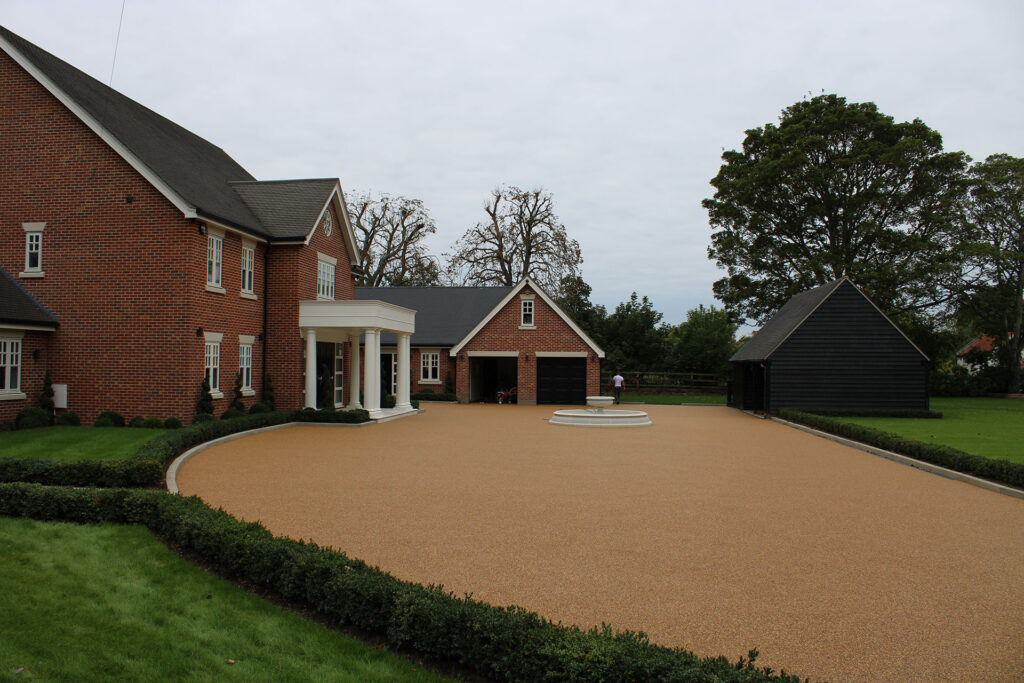
Summary: Enhance Your Home with a Long-Lasting Resin Driveway
A professionally installed resin-bound driveway, laid with high-quality UV-stable materials on a solid, permeable base, can last 20–25 years or more. Its strength, drainage, and low-maintenance design make it one of the most reliable and visually appealing choices for UK homeowners.
At Ace Resin, we use only premium materials and proven installation methods to create driveways built to last. Contact our team today for expert advice or a free consultation and discover a resin surface designed to look exceptional year after year.
Contact us today for your free resin driveway quote and discover the difference expert installation makes.
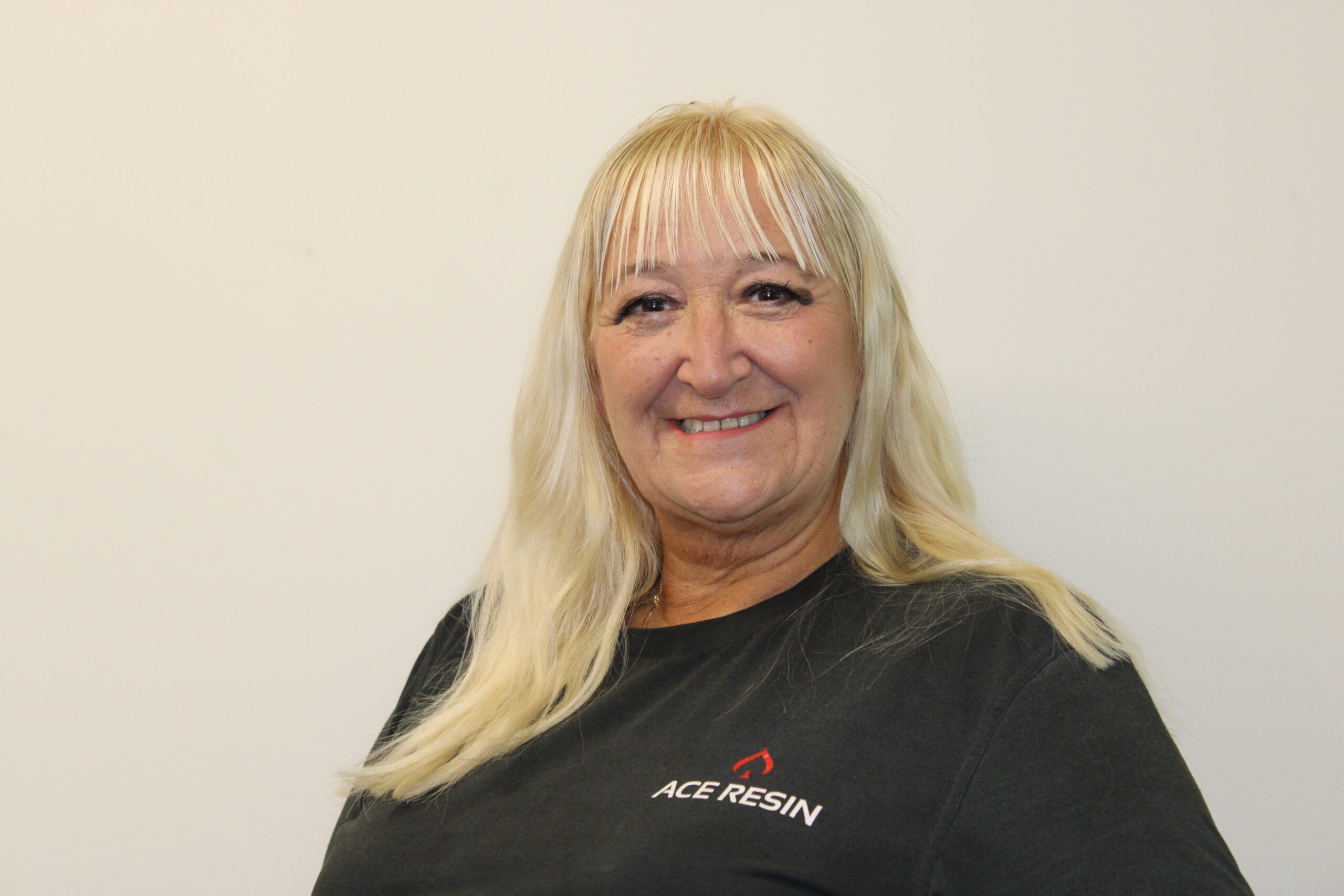
Donna Jones
HEAD OF SALES
Donna Jones, Head of Sales at Ace Resin, has 40 years of construction experience, including two decades at the forefront of resin-bound surfacing. Passionate about innovation and sustainability, she plays a key role in supporting contractors across the UK, helping them enhance their projects with premium, eco-friendly solutions and expert training.

